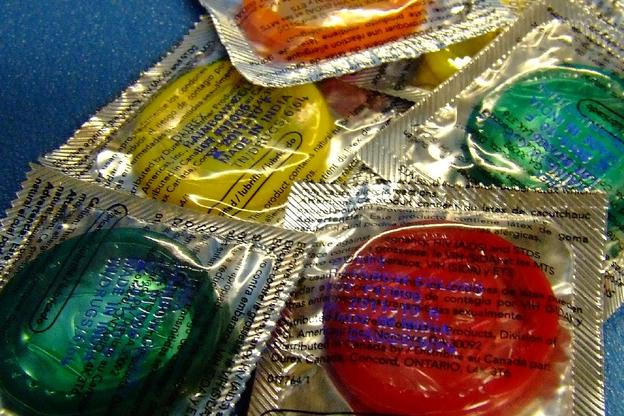Questions & Answers, Sexual Health
Q&A: Epididymitis – Symptoms and Treatment
QUESTION: My boyfriend was just diagnosed with epididymitis yesterday; however the doctor didn’t mention anything about staying away from sex, using protection from now on or whether or not I can get infected and pass it back to him. We have been having unprotected anal, oral & vaginal sex for a little over a year now & neither one of us have any STIs. I am curious to know what causes epididymitis. Also, can we continue to have sex and, if so, should we use protection?
Thank you for your question. Good for you for wanting to learn more about how your boyfriend’s diagnosis may be related to your own health, and to the sexual life that you share together.
The Epididymis and Epididymitis
The epididymis is a thin tube that sits just above and behind men’s testicles. Although it takes up a small space in the body, it’s actually quite long, and is tightly coiled. Its main function is to collect and store sperm (which is made by the testicles) prior to ejaculation.
The word “epididymitis” refers to an inflammation or infection of this tube; however there can be several different causes for the inflammation.
Symptoms
Common symptoms of epididymitis include feelings such as pain, tenderness, soreness, or swelling of the scrotal area (the scrotum is the sac of skin that contains the testicles and epididymis).
These same symptoms can indicate other problems (such as trauma to the testicles that occurs as a result of sports injuries or other accidents). Therefore it is always a good idea for men to check in with their healthcare provider if they experience such symptoms. Less often, men may notice symptoms such as fever and chills or a discharge from their penis.
Often Caused By STIs
In college aged men, epididymitis is often caused by sexually transmissible infections (STI) such as chlamydia or gonorrhea. Chlamydia is the most common bacterial STI, and it is particularly common among high school and college aged men and women. Fortunately, both chlamydia and gonorrhea can be cured with certain antibiotics, and testing is easily done.
Other Causes And Treatment
There are other causes of epididymitis including enlargement of the prostate gland (rare in younger men), urinary tract infections and other types of bacterial infections which are not sexually transmitted. Treatment for epididymitis depends on its cause; if it is bacterial (whether from a STI or not), the typical treatment is a course of antibiotics.
In order to better understand how your boyfriend’s diagnosis of epididymitis affects your sexual life together, you two will need to ask his healthcare provider what the cause of his particular case of epididymitis seems to be.
His healthcare provider most likely tested your boyfriend for STIs. If your boyfriend tested positive for an infection such as chlamydia or gonorrhea, then his healthcare provider will likely suggest that your boyfriend get treated, that you get tested and treated, and that you either abstain from sex until the infection has cleared or that you use condoms for oral, anal or vaginal sex until the infection has cleared.
Check With Your Healthcare Provider
Even if your boyfriend tests negative for STIs, you still may want to check in with a healthcare provider to see if you have any bacterial infections (always a good idea when you’re sexually active).
If your boyfriend is experiencing soreness or discomfort, he may want to abstain from sexual activity until he feels better. Other than that, epididymitis is a common enough condition that — when treated — men typically recover quickly from, and can soon resume comfortable, enjoyable sex.








